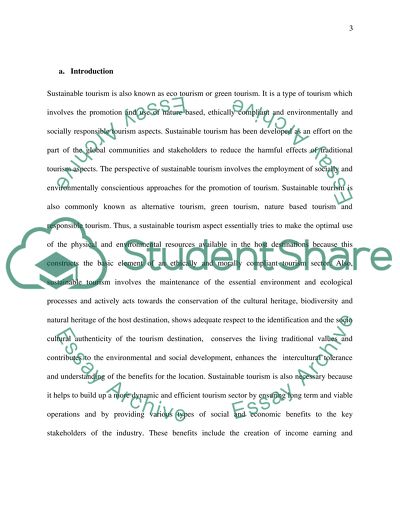Cite this document
(“Investigation of Sustainable Tourism and its Role in Tourism Planning Essay”, n.d.)
Retrieved from https://studentshare.org/tourism/1682721-investigation-of-sustainable-tourism-and-its-role-in-tourism-planning-and-development
Retrieved from https://studentshare.org/tourism/1682721-investigation-of-sustainable-tourism-and-its-role-in-tourism-planning-and-development
(Investigation of Sustainable Tourism and Its Role in Tourism Planning Essay)
https://studentshare.org/tourism/1682721-investigation-of-sustainable-tourism-and-its-role-in-tourism-planning-and-development.
https://studentshare.org/tourism/1682721-investigation-of-sustainable-tourism-and-its-role-in-tourism-planning-and-development.
“Investigation of Sustainable Tourism and Its Role in Tourism Planning Essay”, n.d. https://studentshare.org/tourism/1682721-investigation-of-sustainable-tourism-and-its-role-in-tourism-planning-and-development.


